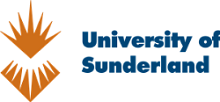Computer Systems Engineering (Top-Up) BSc (Hons)

Winter intake start date
2026-02-01
Winter intake deadline
2022-11-25
This one-year ‘top-up’ course develops a blend of academic rigour and practical skills as it brings you up to the level of an honours degree.
On the academic side, you will study a module on approaches to research. This will explore how to specify a problem and how to decide on appropriate methodologies, collect relevant data, analyse the data and develop sound conclusions and evidence-based action plans.
To develop practical skills, you will undertake a major hands-on project that involves developing a working solution to a particular problem. In doing this, you will be able to take full advantage of professional-level developer software and advanced hardware that we provide through accreditations with Microsoft, Cisco and other major companies.
Further modules include ‘Advanced Databases’, ‘Artificial Intelligence’ and ‘Concurrent and Distributed Systems’. A module on ‘Project Management’ will equip you for working within project teams in large IT departments or specialist IT companies.
See what some of our staff and students have to say about Computing at the University of Sunderland:
O przyjęcie na studia Top-up mogą ubiegać się osoby, które ukończyły pierwszy stopień studiów (licencjackie lub inżynierskie), lub są na ostatnim roku tych studiów. Przy ubieganiu się o przyjęcie na studia Top-up, należy mieć 120-180 punktów ECTS (z przedmiotów dotychczas zaliczonych na studiowanym lub ukończonym kierunku), dlatego podczas składania dokumentów upewnij się, że masz wystarczającą ilość tych punktów. Studia, które planujesz powinny mieć zbliżony profil do tych kontynuowanych lub ukończonych, ponieważ w procesie rekrutacji kluczowa jest ich zgodność programowa. Kończąc studia Top-up, otrzymasz dyplom studiów pierwszego stopnia.
Wykaz punktów ECTS – osoby, które są jeszcze w trakcie studiów, muszą załączyć wypis punktów ECTS, w którym będzie wykazane, jakie przedmioty były realizowane na studiach oraz ile punktów za nie otrzymano.
Dyplom ukończenia studiów licencjackich lub inżynierskich – jeśli jesteś absolwentem wyższej uczelni, nie potrzebujesz wypisu, wystarczy tylko załączyć dyplom ukończenia studiów wraz z suplementem (w języku angielskim lub oryginał z tłumaczeniem)
Ważne jest, by uczelnia otrzymała wyniki testu z języka angielskiego do 31 lipca.
Spełnienie wymagań w zakresie języka angielskiego można udokumentować w następujący sposób:
IELTS - 6.0
TOEFL – 80
Uwaga: wymagania językowe na poszczególnych kierunkach mogą różnić się między sobą.
Employment & careers
Sunderland has a good reputation with employers and, according to the Destination of Higher Education Leavers Survey 2010, 86% of our computing graduates are in employment or further study within six months of graduating. The top type of job gained by our graduates is ‘information and communication technology professional’.
Our graduates have become web programmers, IT managers, information analysts and software developers. Employers that have taken on our graduates include Sage, British Airways and the NHS. Other graduates have started their own businesses or become software contractors earning over £50,000 a year.
Recognition by BCS, the UK’s Chartered Institute for IT
Graduates of our course will automatically gain exemption from some of the requirements of the BCS, the UK’s Chartered Institute for IT. Becoming chartered through the BCS is a further way to demonstrate your professionalism and value to potential employers.
Software Hatchery
Students with business ideas can develop them at our office space specifically for software entrepreneurs, based at our campus and supported by Sunderland Software City. Our ‘Software Hatchery’ package includes mentoring, state-of-the-art computing infrastructure, a meeting area and networking opportunities. Other support for student entrepreneurs includes our annual Blueprint Business Planning Competition, run by the University's Enterprise Team.
University Language Scheme
It is usually possible to take a module from the free University Language Scheme, which will earn credits towards your degree. The language module can be taken on top of or as part of the 120 credits needed to complete a year.
Language skills increase your international mobility and you can choose between French, German, Spanish, Japanese and Chinese at a range of levels. If your first language is not English, please check with your tutor about entry requirements.
Experience
The University of Sunderland is committed to ensuring that every student has an impressive range of opportunities to enhance their CV and gain valuable experience.
CV-enhancing opportunities include:
- Work placements
- Graduate internships
- Studying abroad
- Student Ambassador Scheme
- Mentoring
- Starting your own business
- Student jobs and volunteering
- Careers advice
For full details, please see our Employability page.
